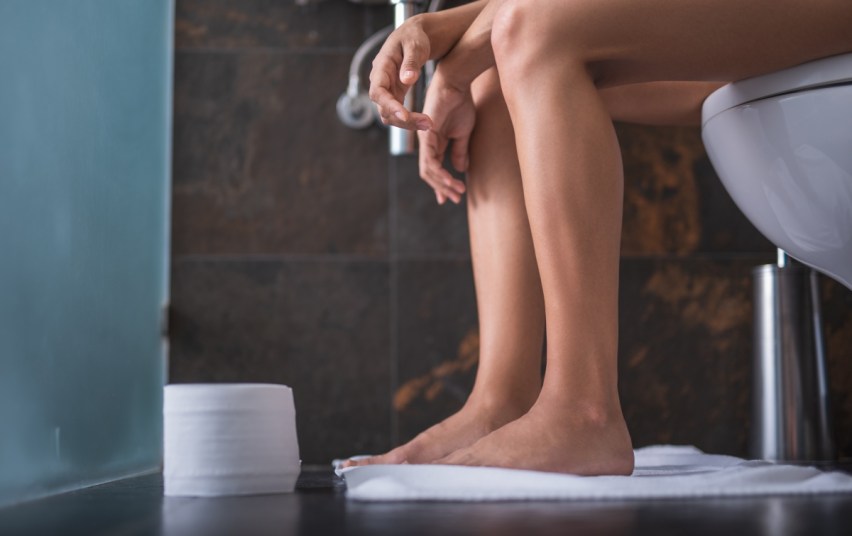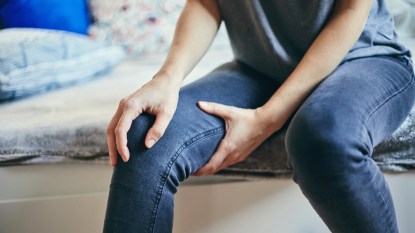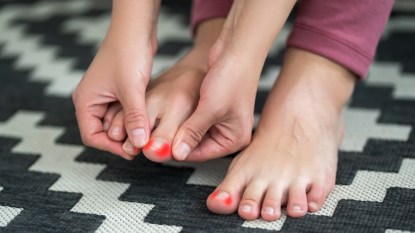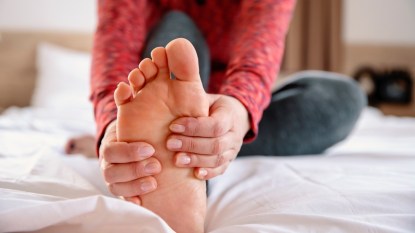5 Tricks for Preventing Bladder Leaks That Every Woman Over 40 Can Use
It's true: Cold weather can exacerbate urinary tract symptoms.

Feel like your bladder is more finicky than usual? You’re not wrong: Colder weather can exacerbate urinary tract symptoms like urgency and nocturia (waking up at night to pee). Try these five natural tricks to help prevent bladder leaks.
Leak a bit when you laugh?
Try strengthening your pelvic floor muscles with a Kegel exercise, a.k.a. “breathe and squeeze.” A clinical trial whose results were published in the journal JAMA Internal Medicine found that older women participants who spent time employing pelvic floor muscle training were able to cut down on bladder leaks. To do: Inhale deeply through your nose. When your lungs are comfortably full, squeeze your pelvic floor muscles (the ones you’d use if you were trying to stop peeing midstream) as you slowly exhale. Release and repeat.
Gotta go now?
When you’re on the go and can’t get to a restroom, try boosting your mind-body connection. A study conducted by Loyola University and published in The Journal of Urology found that cognitive therapy improved participants’ OAB (overactive bladder) symptoms. To do: Imagine a string of lights connecting your brain and your bladder for two minutes. You may be able to calm a jumpy bladder simply by letting it know your mind is in control of when you go.
Prone to UTIs?
Your UTI risk can increase significantly after menopause due to hormone swings. To mitigate your risk, try enjoying wine and cheese more frequently. A study published in the journal Clinical Microbiology and Infection suggests that beneficial bacteria in cheese may reduce the risk of UTIs, while Italian research from Drugs Under Experimental and Clinical Research found that on the island Pantelleria, where wine consumption is common, participants saw an incidence of chronic bacterial urinary infection that was 30 percent lower than the national average. Just make sure to avoid drinking alcohol if you already have a urinary tract infection; it can increase the acidity level of urine and actually worsen your symptoms.
Up at night?
Nighttime bathroom runs disrupt our sleep more frequently as we age. And the problem only worsens when cold air stresses the nervous system. A study conducted on rats and published in The Journal of Urology found that taking the sleep hormone melatonin before bed could —in addition to helping you sleep more soundly and easily — also boost bladder capacity and decrease urine volume. Try 1 to 2 mg. nightly to start with.
Can’t get it all out?
A behavioral technique called “double voiding” can help you learn to empty your bladder more completely to avoid overflow incontinence. The technique involves urinating, then waiting a few minutes and trying again. To empty your bladder completely, try the “take a bow” method: Lean forward for 20 seconds after you urinate (as if bowing), then sit up tall for 10 seconds, and repeat. This compresses your bladder to hopefully eliminate lingering urine.
This content is not a substitute for professional medical advice or diagnosis. Always consult your physician before pursuing any treatment plan.
A version of this article originally appeared in our print magazine, Woman’s World.













